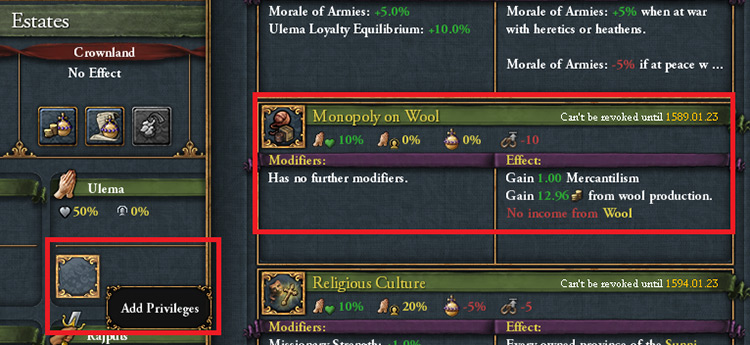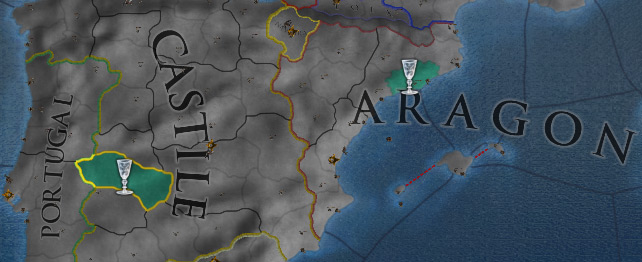On the other hand, you won’t be getting any production income from the monopolized trade goods. This is why you should only grant monopolies for low value trade goods, or those that are scarce in your region.
Basic Effects
Monopolies give you:
8 years’ worth of production income upfront +1 Mercantilism +10% Estate loyalty
And they come with these terms:
10-year period before they can be revoked No production income from the monopolized trade good
Monopolies: An Efficient Source of Mercantilism
The +1 mercantilism happens every time you grant or renew a monopoly. Since you generally have three estates, you can get +3 mercantilism every 10 years. Each point of mercantilism gives you:
+2% Provincial trade power +0.5% Embargo efficiency +0.05% Burghers and Vaishyas estate loyalty equilibrium +0.25% Liberty desire for colonial subjects
High mercantilism means your trade can flourish. Since late game economies are built on trade, building up your mercantilism stat from the start is highly recommended.
List of Monopolies
Note: The numbers highlighted in green are the recommended monopolies due to their low value. Special estates share the same monopolies with their basic counterparts. Each monopoly type can only be granted to one estate.
Why Monopolize Low Value Trade Goods?
Simply because you’ll maximize the monopolies’ value. You’ll be losing out on the production income from the monopolized trade goods. Thus, developing their base production isn’t recommended. On the other hand, the base production of cheap goods like livestock are typically ignored. Their base manpower is a more preferred development option. Since you’re not going to increase their productivity, then they’re perfect to be given away as a monopoly.
What About Expensive Trade Goods with Limited Availability?
The Burghers’ preferred monopolies are all valuable trade goods. For those, you must consider their scarcity in your country or region. If you’ve only less than a couple of provinces producing glass, cloth, or paper, then feel free to use them for a monopoly. This is especially recommended when developing them is costly — like if they’re a mountain province.


